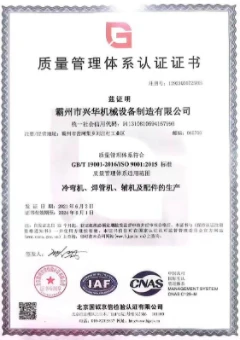erw pipe machine
Understanding ERW Pipe Machines Technology and Applications
Electric Resistance Welded (ERW) pipe machines are a crucial part of modern manufacturing, allowing for the efficient production of high-quality steel pipes. The process employs electric resistance welding, a technique that has revolutionized the way pipes are produced, making them more durable, flexible, and efficient for a wide range of applications. In this article, we will delve into the technology behind ERW pipe machines, their manufacturing process, and their various applications across industries.
The ERW Pipe Manufacturing Process
The core of the ERW pipe manufacturing process begins with the heating of steel strips. These strips are continuously fed into the machine, where they are shaped into a cylindrical form. The edges of the strip are then brought together and subjected to electric resistance welding. This method generates heat through the electrical resistance of the steel, allowing the edges to melt and fuse together without the need for any fillers or additional materials.
Once welded, the pipe undergoes a series of processes including sizing, piercing, and testing. The sizing process ensures that the pipe meets the desired diameter and wall thickness specifications. The welded pipe is then subjected to pressure tests and inspections to ensure its structural integrity and quality. Advanced non-destructive testing techniques, such as ultrasonic and X-ray inspections, are often employed to detect any potential flaws in the weld or material.
Advantages of ERW Pipes
ERW pipes offer several distinct advantages over other types of pipes, such as seamless or spiral-welded pipes. One of the primary benefits is their cost-effectiveness. The manufacturing process is more efficient and requires less raw material, resulting in lower production costs. This economic efficiency is particularly advantageous for large-scale projects where budget constraints are a major consideration.
Moreover, ERW pipes exhibit excellent mechanical properties. The welding process produces a strong bond that enhances the overall strength of the pipe. Consequently, ERW pipes can withstand high pressures, making them suitable for various applications, including oil and gas transportation, construction, and infrastructure development. Their uniformity and consistency also allow for better quality control, making them a preferred choice for engineers and contractors.
erw pipe machine

Applications of ERW Pipes
ERW pipes are used in a myriad of industries due to their versatility and reliability. One of the most significant applications is in the oil and gas sector, where they are employed for the transportation of crude oil, natural gas, and other fluids. The strength and corrosion resistance of ERW pipes make them ideal for use in harsh environments.
In the construction industry, ERW pipes are commonly used for structural applications, such as scaffolding, handrails, and support beams. Their ability to be produced in various diameters and wall thicknesses allows for customization according to project specifications.
Additionally, ERW pipes find applications in the water supply and sewage systems, where they are used for both potable water and wastewater transportation. Their smooth internal surface minimizes friction loss, enhancing the efficiency of fluid flow.
Future of ERW Pipe Machines
With ongoing advancements in technology, the future of ERW pipe machines looks promising. Automation and artificial intelligence are increasingly integrated into the manufacturing process, enhancing efficiency and reducing human error. The use of smart sensors enables real-time monitoring of production quality, ensuring that the pipes meet stringent industry standards.
Moreover, as industries move towards more sustainable practices, there is a growing demand for environmentally friendly manufacturing methods. Modern ERW pipe machines are being designed with energy efficiency in mind, helping to reduce the carbon footprint of the production process.
In conclusion, ERW pipe machines play a significant role in the manufacturing of durable and efficient pipes used across various industries. Their ability to produce high-quality products at a lower cost, coupled with continued technological advancements, ensures that ERW pipes will remain a vital component in infrastructure development and industrial applications for years to come. The future holds great potential for this technology, promising even greater efficiencies and innovations.
-
High Frequency Straight Seam Welded Pipe Production Line-BzZhou Xinghua Machinery Equipment Manufacturing Co., LTD.|Precision Welding, High EfficiencyNewsJul.30,2025
-
High Frequency Straight Seam Welded Pipe Production Line|BzZhou Xinghua|Precision Welding&EfficiencyNewsJul.30,2025
-
High Frequency Straight Seam Welded Pipe Production Line - BzZhou Xinghua|Precision Engineering&EfficiencyNewsJul.30,2025
-
High-Frequency Straight Seam Welded Pipe Production Line-BzZhou Xinghua Machinery Equipment Manufacturing Co., LTD.NewsJul.30,2025
-
High-Frequency Straight Seam Welded Pipe Production Line-BzZhou Xinghua Machinery Equipment Manufacturing Co., LTD.|Precision Manufacturing, High EfficiencyNewsJul.30,2025
-
High Frequency Straight Seam Welded Pipe Production Line-BzZhou Xinghua Machinery Equipment Manufacturing Co., LTD.|Precision Steel Pipe Manufacturing&Industrial EfficiencyNewsJul.29,2025


